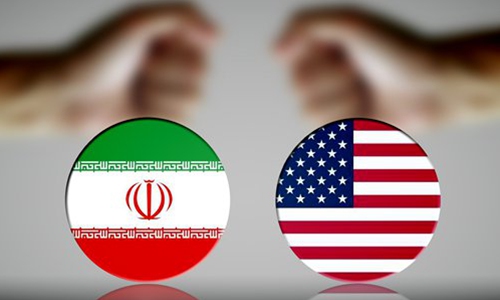HOME >> OPINION
Global efforts needed to restrict US adventurism
By Wang Wen Source:Global Times Published: 2020/1/6 18:58:41

Photo: IC
An Iranian friend of mine asked me what I thought about the killing of Qasem Soleimani, commander of Iran's elite army Islamic Revolutionary Guard Corps by a US drone strike in Iraq the day after Soleimani's death. I answered without hesitation - this is an act of state terrorism. There was no trial, no Congress authorization, no public debate, and the US simply killed a senior official of a sovereign country by arbitrary use of force and accusations from its hegemonic discourse power.This makes me feel fear and anger with more negative views toward the US, a country that has been flaunting itself over freedom and democracy.
My Iranian friend says there are not too many Chinese who would say it like I do and says he has heard a lot of pro-US voices in China.
I responded, this is not the case. Chinese State Councilor and Foreign Minister Wang Yi has reiterated that the US should stop abusing the use of force, calling US behavior military adventurism. Russian Foreign Minister Sergei Lavrov also urged Washington to "stop using unlawful methods of force."
I have also observed quite a few countries' public opinion about the case. It is believed the majority people across the world loathed the rudeness and cruelty of the current US administration.
I don't know if my words could convince my Iranian friend. But Chinese people's understanding of Iran is deepening.
Both China and Iran are continuations of ancient civilizations. People of these two countries nowadays still can recognize their respective ancient languages dated back to thousands of years ago. This is not commonly seen in world history. Chinese and Iranians should be proud of the vitality of their civilizations.
China and Iran were both victims of external invasions, particularly in modern times. Such experience has enhanced the two peoples' national identity, which is shown in their pursuit of independence, autonomy and national rejuvenation. This sentiment has also led to the mainstream society of China and Iran - especially elites' - dissatisfaction with US and European double standards on human rights issues as well as serious doubts on the so-called universal values of the West.
The two countries have complicated geopolitical environments. However, China and Iran have many neighboring countries and the geopolitical environment is extremely complicated, which is a great challenge to the political strategy of the two countries' politicians. With a little carelessness, these two countries could be in danger of being infiltrated, impacted or even dismembered by external forces.
In the US National Security Strategy issued in December 2017, Washington views Iran as a "rogue state" and China a "revisionist power," both of which are its "main sets of challengers." US elites also have a strategic consensus on their disapproval of Chinese and Iranian governments and their systems and even on attempts to overthrow the governments of China and Iran.
These similarities do not mean that China and Iran share the same policy toward the US. Tehran is pursuing a foreign policy of full confrontation with Washington, different from China's US policy - "at odds, but not at war."
Iran's oil exports to China sometimes come with demanding requests. Iran strategists hold the belief that China's need for Iran far exceeds Iran's need for China. So far, China has established strategic partnership with dozens of countries, but hasn't built such relations with Iran yet. This has restricted China-Iran ties from getting closer.
However, it cannot be denied that Beijing-Tehran relations are now at an all-time high. China will definitely not join forces with Iran to confront the US, but the two countries can engage in broader strategic and political cooperation. Just as what I wrote in my book Iran Against Demonization, China strikes a chord with Iran that European and US media outlets are biased and misleading when reporting countries with big ideological divergences.
Chinese media, scholars and policy researchers are expected to look beyond Western perspectives and seek to analyze the world with more independent thinking and prudent judgment.
Judging by the world reaction to the killing of Soleimani, I believe that the current US administration's global actions should be condemned and constrained. Iranians need to make more efforts, so do the people of the world. In an attempt to maintain the US image and the true spirit of freedom and democracy, Americans should restrict the unbridled moves of their president.
The author is professor and executive dean of Chongyang Institute for Financial Studies at Renmin University of China, and executive director of China-US People-to-People Exchange Research Center. His latest book Great Power's Long March Road was launched recently. wangwen2013@ruc.edu.cn
Posted in: COLUMNISTS,VIEWPOINT